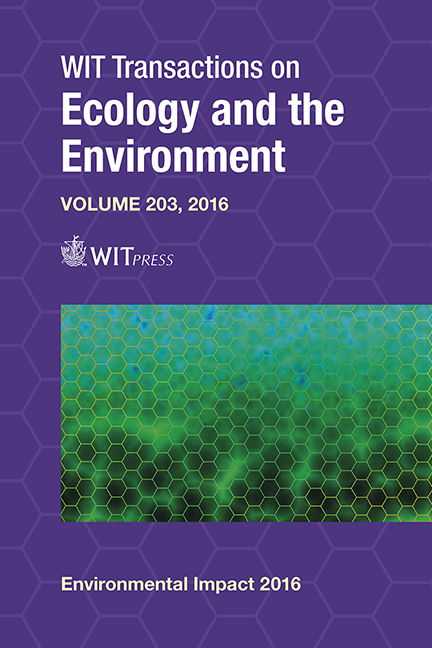Effectiveness Index For Environmental Impact Assessment Methodologies
Price
Free (open access)
Transaction
Volume
203
Pages
14
Page Range
73 - 86
Published
2016
Size
377 kb
Paper DOI
10.2495/EID160071
Copyright
WIT Press
Author(s)
A. L. Caro, J. J. Toro
Abstract
The Environmental Impact Statement (EIS) is a basic tool for decision-making about activities that may affect the environment. Because of its importance, the EIS should include impact assessment methodologies with thorough structures and implementation, so that the results obtained regarding possible environmental impacts are accurate. Due to the need for quality and performance parameters, an index of effectiveness is proposed to evaluate the methodologies used for that purpose. This was designed in three phases: i) identification of analysis parameters; ii) indicators setting; and iii) formulation of the mathematical expression. The effectiveness index for environmental assessment methodologies (EIM), incorporates two weighted elements: i) the structural parameters value (SPV) that refers to the concept of efficacy related to the design of the methodology and its components. It has four weighted variables: a) totality; b) objectivity; c) relevance; d) accuracy and an uncertainty factor (UF) established from opinions by experts. ii) The operating parameters’ value (OPV), represents the efficiency of the evaluation and it articulates the development of the methodology, the stakeholders and resources employed. The OVP includes three weighted variables: a) interdisciplinarity; b) expertise; and c) participation. To assign the value of variables, a system of descriptive indicators is proposed. From the implementation of the EIM it is concluded that the methodologies used to evaluate environmental impacts in Colombia during the period 2012–2014 are not effective, for this reason the actions taken around these and possible management are insufficient because are not addressed the impacts that were poorly evaluated. The use of this tool is recommended to identify failures in the methodology in order to generate control strategies.
Keywords
assessment, effectiveness, environmental impact, index





